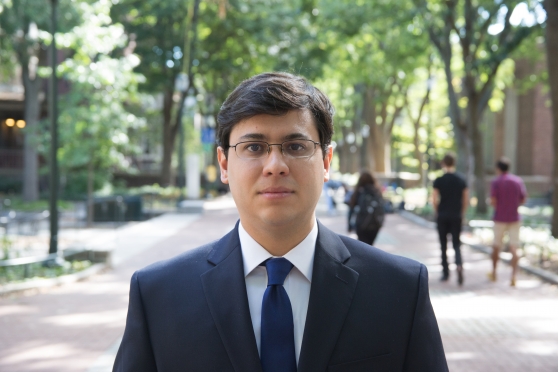Raphael Galvao

Political Economy of Transparency
This paper develops a model where short-term reputation concerns guide the public disclosure of information and affect welfare in a coordination environment. Entrepreneurs use public information to make investment decisions, and there is complementarity in their actions. There are and high and low states that determine the productivity in the economy, and the high state is more likely if the government is efficient rather than inefficient. Governments know the state and make public reports with the objective to be perceived as efficient. Entrepreneurs form beliefs about the government based on the public report and the realized productivity, a noisy signal of the state. I find that the inefficient government is never completely truthful in equilibrium. When the efficient government is truthful, the inefficient government sends false reports of a high state with positive probability. This creates uncertainty following the report of a high state: if the true state is high, productivity is underestimated; if the true state is low, productivity is overestimated. This bias reduces welfare in the high state, but there is a tradeoff in the low state: marginal entrepreneurs lose from overestimating productivity; all entrepreneurs gain from a higher aggregate investment. I show that when the trust in the government’s report is low, the inefficient government can improve welfare in the low state by sending false reports that increase investment. However, as the trust in the false reports rises, the bias in entrepreneurs’ beliefs becomes large and welfare decreases (there is too much investment).
Currency Attacks and Government Communication (with Felipe Shalders)
This paper studies a model of currency attacks in which the government can choose a credible signal about the fundamentals of the economy. The government initially pegs the exchange rate and speculators decide whether to attack the currency or not. Speculators observe, in addition to the public signal, a private noisy signal. Public signals create partial common knowledge that can lead to multiple equilibria. It is possible to find disclosure policies that dominate an uninformative public signal, regardless of the equilibrium strategy played by speculators. Commitment is key to this result. The optimal policy with commitment is characterized when, if there is multiplicity, the government only cares about its lowest equilibrium payoff. In this case, the public signal is informative and leads to a unique equilibrium, which is preferred to a full disclosure policy. Our results indicate that the government has incentives for being vague in its communication. The highest equilibrium payoff for the government can be achieved with a two-signal policy. In equilibrium, agents follow the public signal and take the same action: either there is a coordinated attack, or all speculators refrain from attacking.
Introductory Economics for Business Students (Undergraduate), teaching assistant for Professors Anne Duchene and Gizem Saka, Fall 2013-2017.
Macroeconomic Theory I (Graduate), teaching assistant for Professor Jeremy Greenwood, Spring 2016.
Macroeconomic Theory I (Graduate), teaching assistant for Professors Dirk Krueger and Jesus Fernandez-Villaverde, Spring 2014-2015.
Macroeconomics, Financial Economics
University of Pennsylvania
160 McNeil Building
3718 Locust Walk
Philadelphia, PA 19104
Guillermo Ordonez
Guillermo Ordonez
University of Pennsylvania
Department of Economics
3718 Locust Walk
Philadelphia, PA, 19104
Phone: 215-898-1875
E-mail: ordonez@econ.upenn.edu
Harold L. Cole
University of Pennsylvania
Department of Economics
3718 Locust Walk
Philadelphia, PA 19104
Phone: 215-898-7788
E-mail: colehl@sas.upenn.edu
Dirk Krueger
University of Pennsylvania
Department of Economics
3718 Locust Walk
Philadelphia, PA, 19104
Phone: 215-573-1424
E-mail: dkrueger@econ.upenn.edu